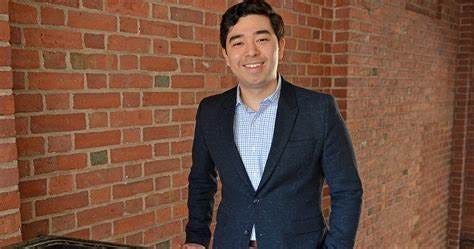Luxury Beliefs: When Elites Play, The Rest of Us Pay
How fashionable ideas among the privileged can create real hardships for those without the same safety nets.
Picture having enough wealth that your beliefs come with no consequences for you—but could ruin someone else's life if they took you seriously. That’s essentially what we’re dealing with regarding "luxury beliefs."
Rob Henderson discussed this idea on The Jordan B. Peterson Podcast, which deserves a lot more attention. The concept of luxury beliefs emerged from noticing that our elites—those with wealth, power, and influence—are increasingly adopting social stances that make them look good. However, these stances often cause significant harm to the very communities they claim to support. So, what are luxury beliefs? Simply put, they’re ideas or opinions that elevate the status of the wealthy and influential while inflicting actual costs on those further down the ladder.
The Family as a Luxury Belief
Take the concept of family, for example. Many privileged individuals preach the virtues of "non-traditional" family structures—suggesting that single-parent households are just as good as two-parent ones or that the nuclear family is outdated. However, research consistently shows that children raised in stable, two-parent households tend to have better outcomes in terms of education, mental health, and overall well-being. Stability in the family unit provides the kind of predictability and support that are crucial for children's development, especially in challenging environments.
For privileged individuals, advocating for a more relaxed approach to the family unit is fine; they have the resources and social support networks to make any family arrangement work. But for those in less privileged situations, having a stable, two-parent family can mean the difference between getting by and being completely lost. Kids who grow up without family stability—like Rob did in the foster care system—face an uphill battle that most of these elites can’t even begin to understand.
Now, I'm not saying that all single-parent families or alternative arrangements are destined to fail. Countless heroic efforts defy the odds. But it’s about what generally works best for children—especially those in already precarious situations. When the privileged promote ideas about family that undermine stability, it’s not their kids who end up paying the price. Their wealth insulates them. They have nannies, private schools, and safety nets. For people without those resources, though, this ideology can lead to real, material consequences—less stability, fewer resources, and more chaos.
The Myth of Hard Work Being Pointless
It’s not just about family. Another example of a luxury belief is the dismissal of hard work as a means to improve one's station in life. The "hard work doesn't matter. It's all rigged anyway" narrative is quite popular among some elites right now. For example, we often hear statements like, "The system is designed to keep certain people down, so why bother trying?" This kind of rhetoric might make them feel enlightened, but it sends a harmful message to those who need hope and motivation the most.
They get to say these things while benefiting from a system that rewards their own efforts (or, in many cases, their parents' efforts). Meanwhile, that kind of messaging can paralyze young people who might otherwise push through adversity to achieve something better. If you convince someone that trying is pointless, you’ve robbed them of their most valuable tool—the belief in their ability to make a difference in their own life.
The True Cost of Luxury Beliefs
Luxury beliefs are, in a sense, like designer clothes—a way for people at the top to signal their sophistication and open-mindedness. The problem is, unlike designer clothes, these beliefs have real consequences for others. When elites flaunt these ideas, they often influence policies and cultural norms, making life harder for those without the same safety nets.
When elite culture frames the traditional family as uncool or dismisses hard work as futile, the people who get hurt aren’t those in gated communities with trust funds. They’re the kids in working-class neighbourhoods who already have enough obstacles to overcome. Beliefs have consequences, and they don’t land equally on everyone. If you have enough money, you can afford to be wrong more often. But if you’re at the bottom and struggling, you can’t afford to take on a belief that makes your life even harder.
The real cruelty of luxury beliefs is that they’re passed off as compassionate when, in reality, they’re anything but. They’re a status symbol that others end up paying for—and that needs to change.
Time to Get Real
We need to get real about the impact of our ideas, especially those we’re broadcasting to people who might not have the same safety nets. Stability—whether through family, community, or personal effort—shouldn't be treated as a quaint relic of the past. It should be protected, promoted, and respected. While it may be a luxury to have the freedom to experiment with radical beliefs, the cost of those beliefs is often paid by those who can least afford it.
Let's recognize the responsibility that comes with influence and wealth. The beliefs we advocate for have ripple effects beyond our own lives, affecting communities that are often the most vulnerable. If we truly want to make a positive difference, we need to advocate for what works—not just what sounds progressive or trendy.



